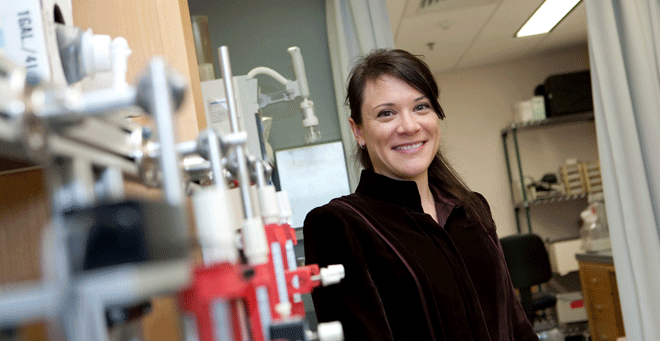 |
|
| Daryl Bosco, PhD |
A new paper by researchers at UMass Medical School published in the Proceedings of the National Academy of Sciences describes disease-causing mutations in a gene called profilin 1 that severely destabilize an important actin-binding protein; this unusual instability may be part of the cause of diseases such as ALS.
The paper, by Daryl Bosco, PhD, associate professor of neurology, and colleagues in neurology and biochemistry & molecular pharmacology, shows cavities forming in profilin as a result of mutations linked to ALS.
“We don't know if mutations cause a gain of toxic function, or a loss of normal function, but this instability can explain either mechanism,” said Dr. Bosco. “In collaboration with Celia Schiffer and her lab, we found a probable source of this instability: cavities or pockets within the protein formed as a consequence of the mutations.”
Celia Schiffer, PhD, is professor of biochemistry and molecular pharmacology and director of the Institute for Drug Resistance. The UMMS team goes on to suggest that filling these cavities with a small molecule might be one path toward treatment of this rare genetic form of ALS.
These ALS-linked mutations in profilin 1 were originally discovered by Bosco and John Landers, PhD, professor of neurology, and Robert H. Brown Jr., DPhil, MD, the Leo P. and Theresa M. LaChance Chair in Medical Research and chair and professor of neurology and colleagues. That paper appeared in Nature in August 2012.